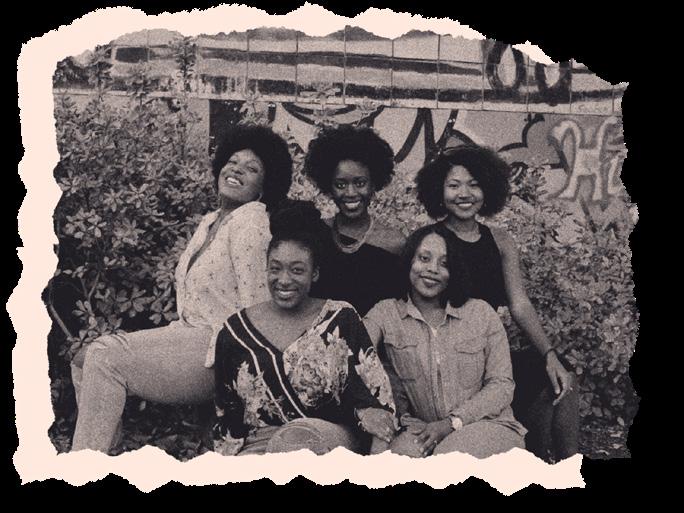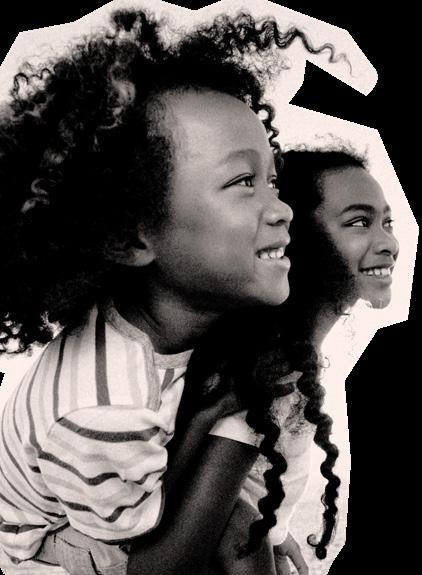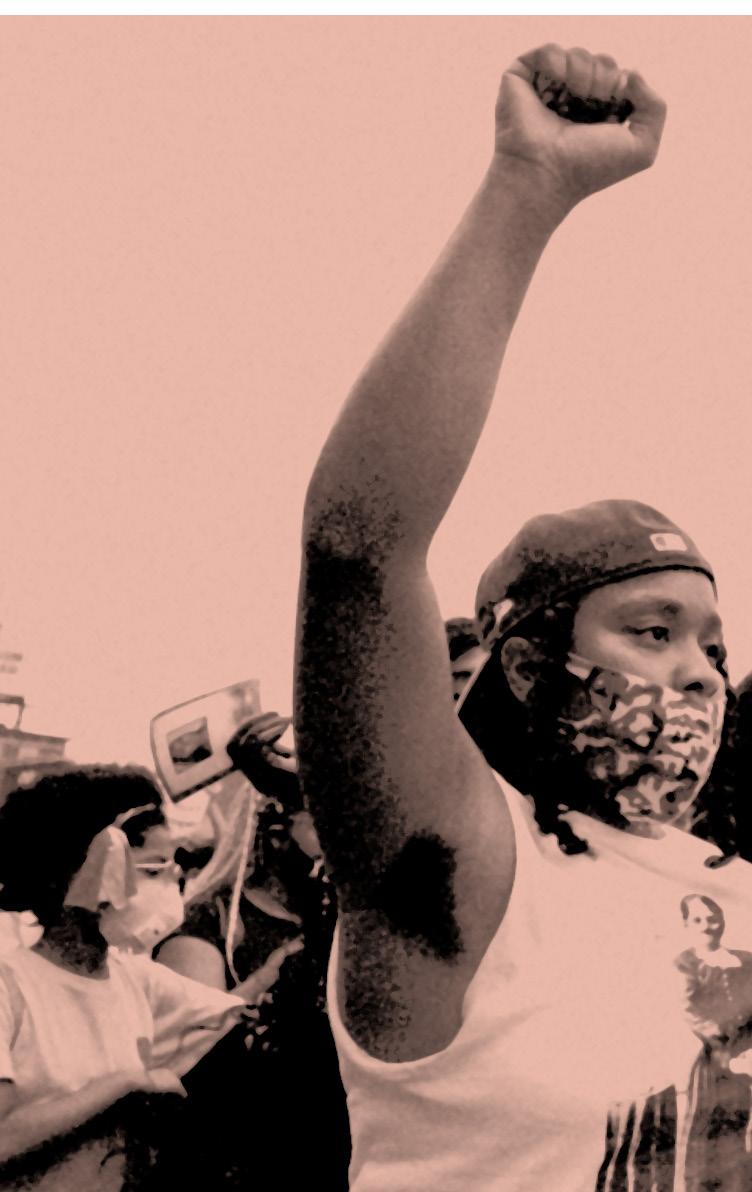
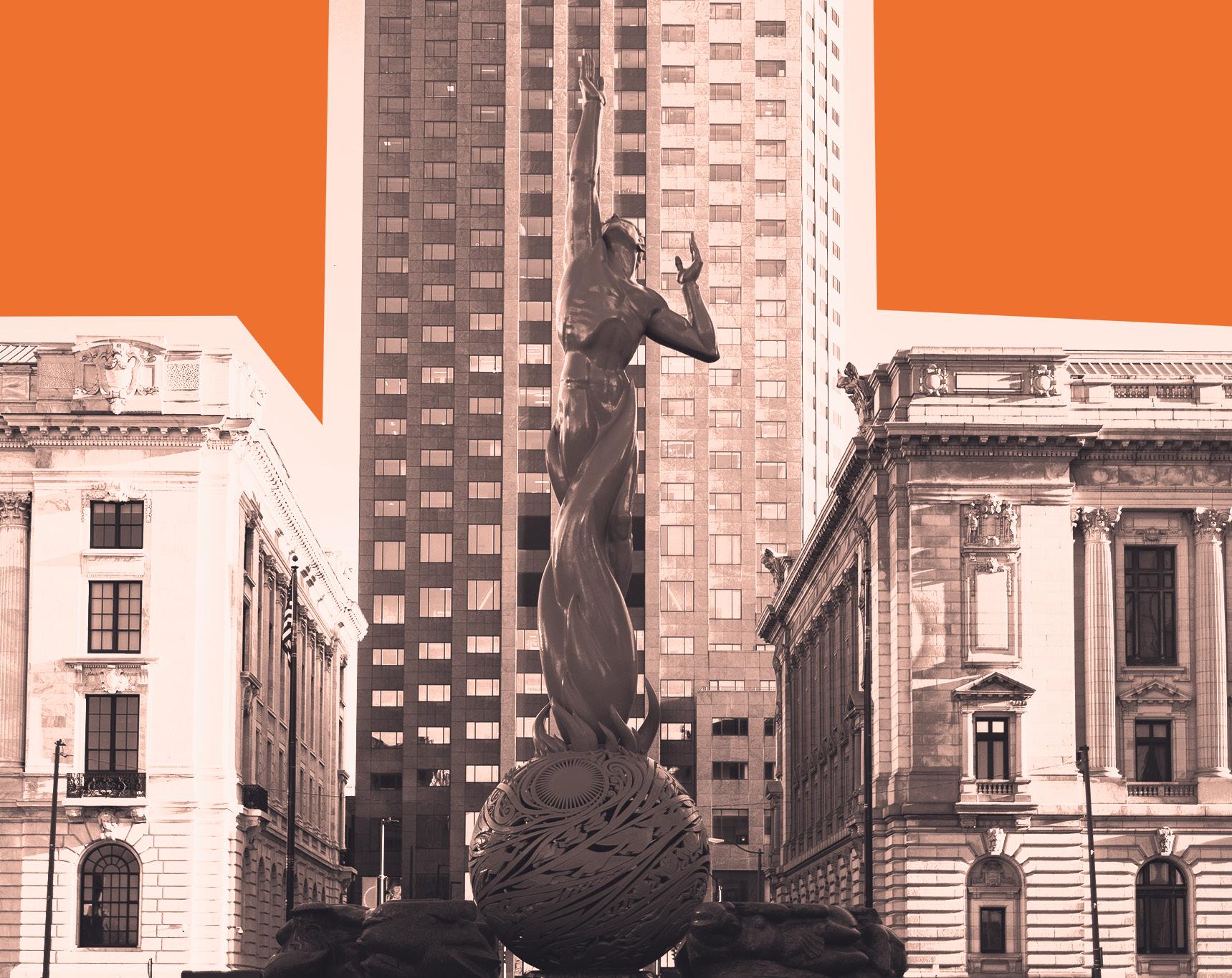
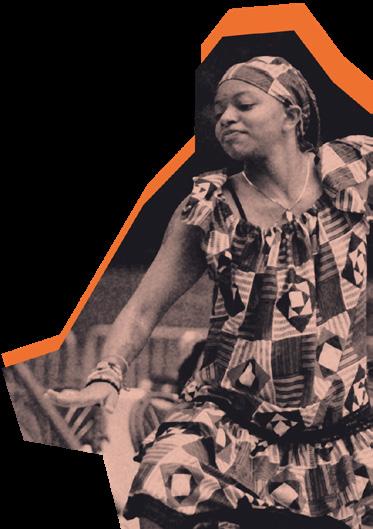

Although voting is a fundamental right and a powerful tool to facilitate social change, the U.S. has a long history of disenfranchising Black political power and barring Black voters from effectively participating in electoral politics. In addition to a complex history with voting, in 2024, on the cusp of a critical presidential election, Black voters express growing disinterest in voting, given the ongoing lack of trust and general interest in the presidential election caused by the perception of a recurring cycle circulating false hopes and broken promises every four years.
New Voices for Reproductive Justice understands the continual gap between what is promised during elections and what is actually done once politicians are in office. We know that our liberation cannot be legislated and also recognize that voting is a tool that we can use to represent our voices in our
ongoing fight for safe and healthy communities, better education for our children, better-paying jobs, and an overall improved quality of life. We seek to build power for and alongside Black women, Black queer folks, and Black marginalized people in an authentic and unapologetic way that empowers our people to use our voices and exercise our rights.
This zine is a community-centered election guide equipped with voter information, policy notes, and community information and opportunities for you to know what’s going on in your backyard, and what you can do about it. Use this as a tool to help you navigate the upcoming election experience and be a community champion beyond this November.
WHY ARE YOU VOTING?................................................
WHAT IS VOTER SUPPRESSION?.................................. BE VOTER SMART ........................................................ DATES TO REMEMBER.................................................. BE VOTER READY ......................................................... WHAT’S ON THE BALLOT? ........................................... DO YOU NEED AN ABSENTEE BALLOT?........................ KNOW YOUR (VOTING)RIGHTS .....................................
FEATURED ARTIST: CHRISTA FREEHANDS...................
MUTUAL AID IN CLE .....................................................
REPRODUCTIVE JUSTICE IN CLE .................................
DEFENDING OUR KIN: AHLON GONZALEZ ...................
WHAT IS POLICY?......................................................... OHIO POLICY: NEED TO KNOW..................................... TAKE CARE OF YOURSELF............................................
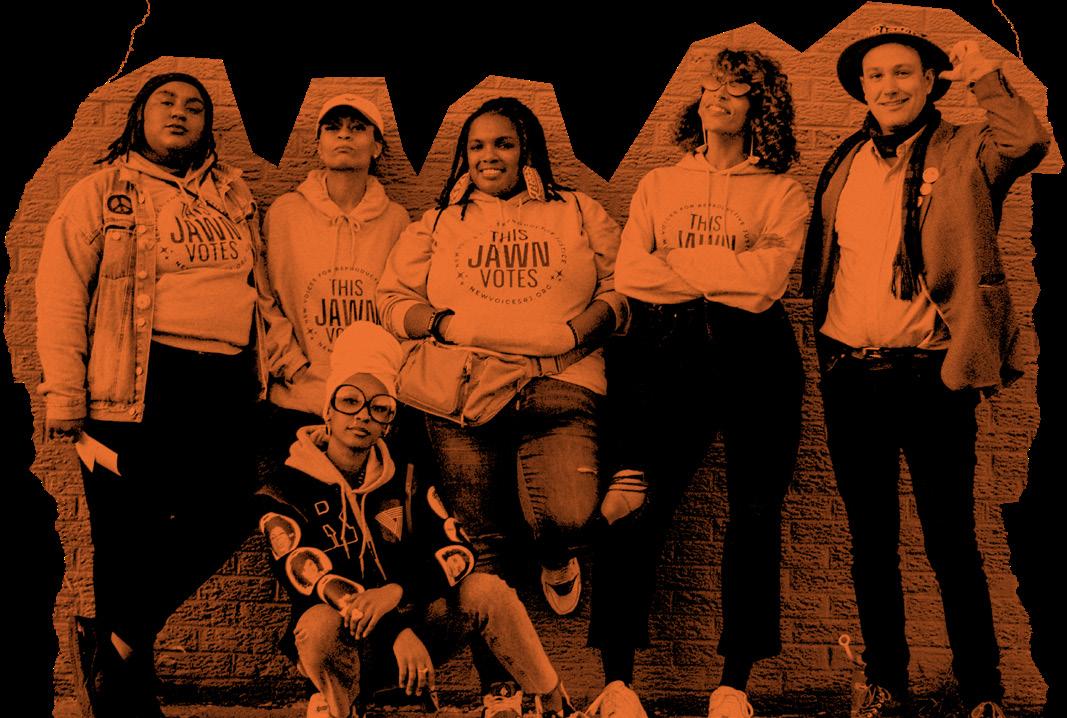
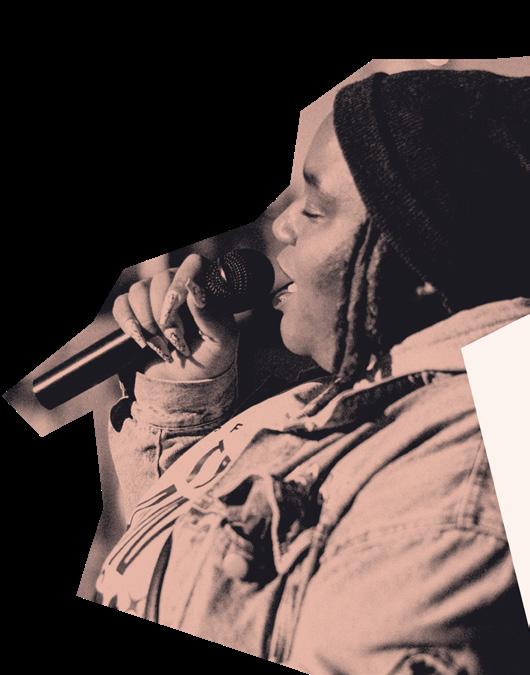
Since March 2024
New Voices has been contacting people throughout Pennsylvania to talk about why they may be feeling apathetic or reserved about the voting process. Feeling “apathetic” means you have no interest or enthusiasm when it comes to the Election and voting. Most of the folks we talked to said that they “distrust the system” and secondly, feel uninformed about the issues relevant to the campaign as well as the candidates.
To help us understand this more deeply, we began surveying our communities on their thoughts about the electoral process. Thirty-one percent of people we polled were neutral about the voting process (don't love it but don’t hate it either), but 45% (almost half) had negative feelings toward the voting process as a whole. People that we spoke with also report that our current electoral process is antiquated, needs significant
improvement, is not fair, and is discouraging.
This also means that 76% of people we surveyed do not fully believe or trust the Electoral process in this country.
The primary needs that impact people’s participation come down to four buckets: Resources, Protection of Rights, Education, and Reducing Violence in neighborhoods. When people mention resources, they want more career opportunities and better-paying jobs, help with childcare, and housing security. When people mentioned the rights they wanted to protect, Reproductive Rights were the most prominent. People also want to see a significant drop in violence and want some form of gun control and common sense legislation, in addition to meaningful opportunities for youth to learn, grow, and contribute to their communities.
Voter information and Political Education (the development of shared language, understanding, and a vision around definable politics, communal aspirations, and an understanding of the distinctions between our aligned positions and where we disagree) are necessary. Our neighbors do not know about the races taking place on the local level and often do not know how and where to vote.
Community members also expressed they’d like to see local organizations more intimately involved in what is happening throughout our city and various neighborhoods. We learned that people want more opportunities to gather, have their voices heard, and receive the necessary education needed to make informed decisions when participating in elections - and do not appreciate or benefit from political parties or
organizations attempting to “scare” them into voting. Our neighbors also shared that they want to be able to rely on local organizations for information so they can share it with their friends, families, and extensive networks.
New Voices for Reproductive Justice is committed to distributing mutual aid (resources that help fill the gap from societal and governmental direct service holes), providing leadership development opportunities to help cultivate Philadelphia’s next generation of change makers, and sharing political education tools, like this one.
We hear you. We stand with you. We ARE you. Our power is local. Imagine More. Demand More.
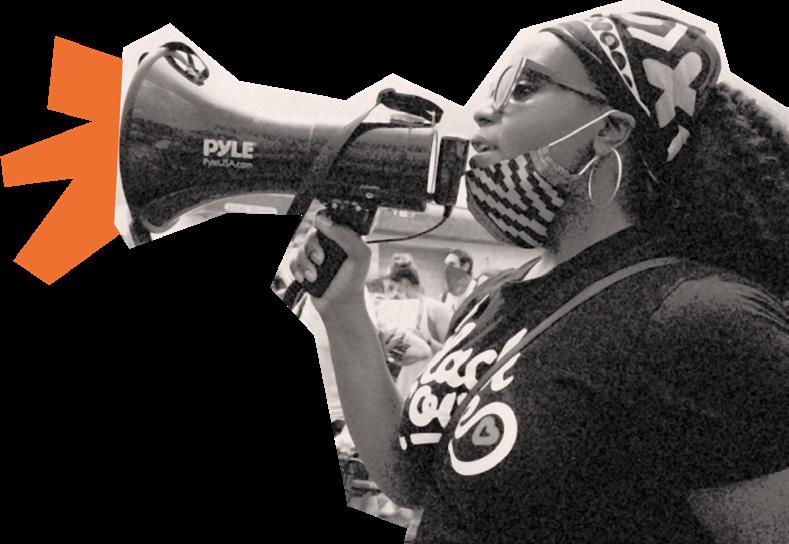
Voter suppression is a tactic that restricts the voting process and disproportionately impacts Black, and other marginalized people (like poor people, immigrants, etc.), who have been historically and systemically disenfranchised and continue to be today. It limits resources and education and restricts the eligibility and access for voters needed to make informed political decisions for themselves and their families.
A restrictive piece of legislation, House Bill 458, was passed into law in January of 2023. This is how it impacts you and your voting power:
> It forces in-person voters to use an unexpired photo ID to vote, during the early voting period, or on Election Day. There are only four acceptable photo IDs. They are an Ohio driver’s license, an Ohio-issued state identification card, a U.S. or state military ID, or a passport.
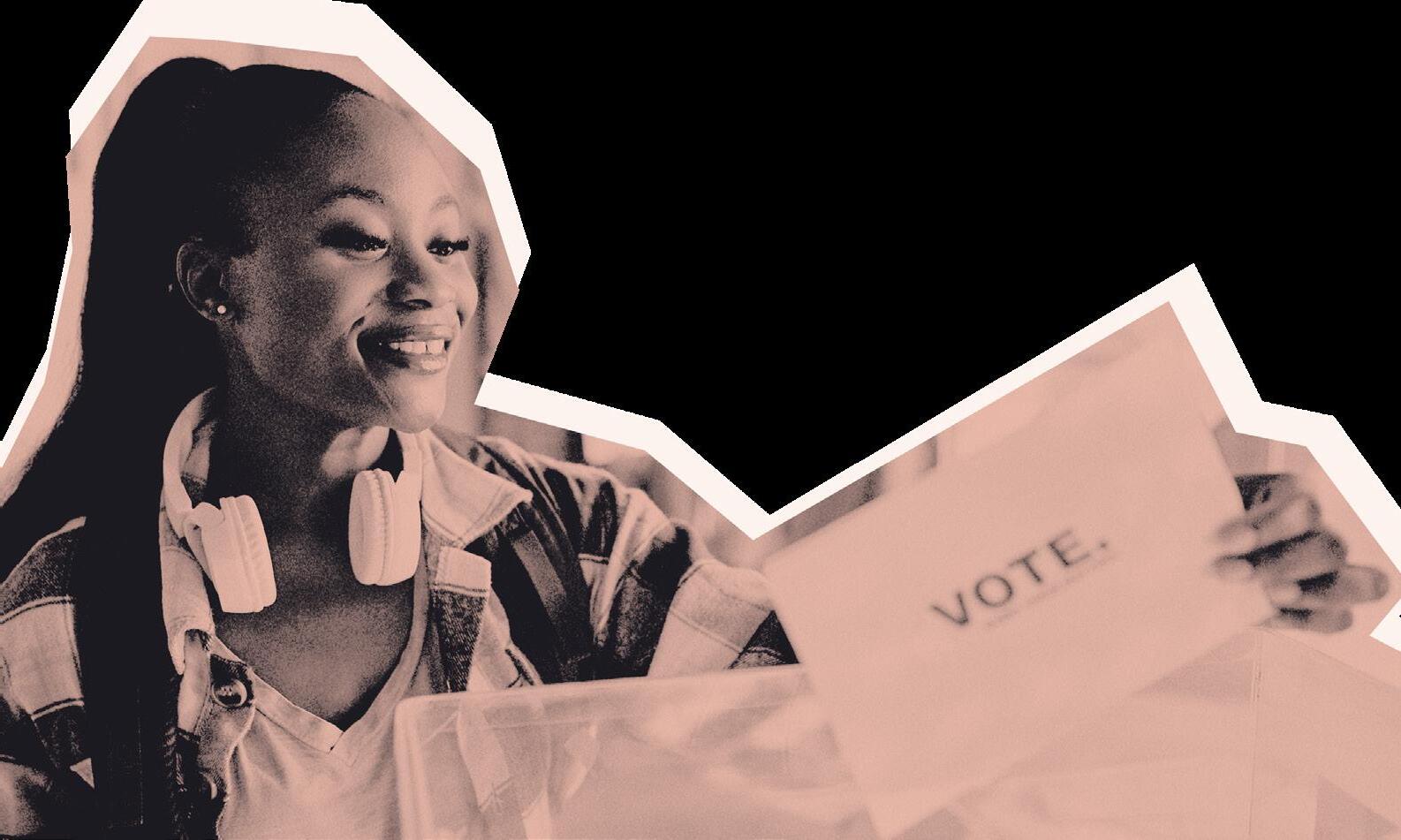
> It limits absentee ballot drop boxes to your county’s board of elections. The Cuyahoga County Board of Elections is located at 2925 Euclid Ave Cleveland, OH 44115.
> It shortens the absentee ballot request window. Ballots must now be
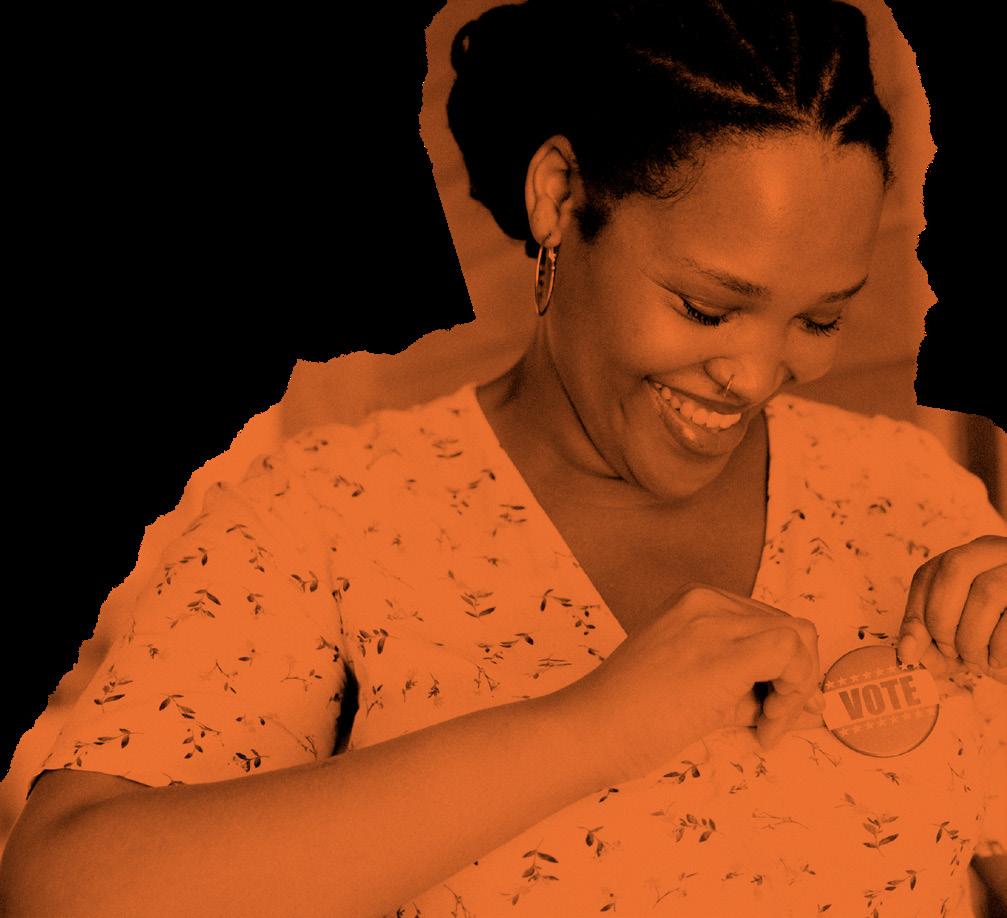

requested a full week before Election Daythe previous Tuesday by 5:00 PM, whereas previously you could request an absentee ballot by noon on the Saturday before the Election.
> It adds citizenship as a designation on driver’s licenses and state ID cards.
> Early in-person voting for the General Election begins at the Cuyahoga County Board of Elections on 10/8/24 the day after the voter registration deadline. The last day of early in-person
Board of Elections 4 days after Election Day. Previously, there was a ten-day window for absentee ballots to be received.
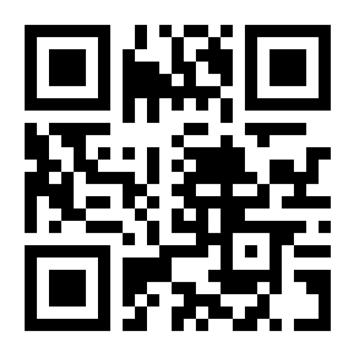
Curbside voting is now only available for people who have a physical disability or those physically unable to enter a polling location.
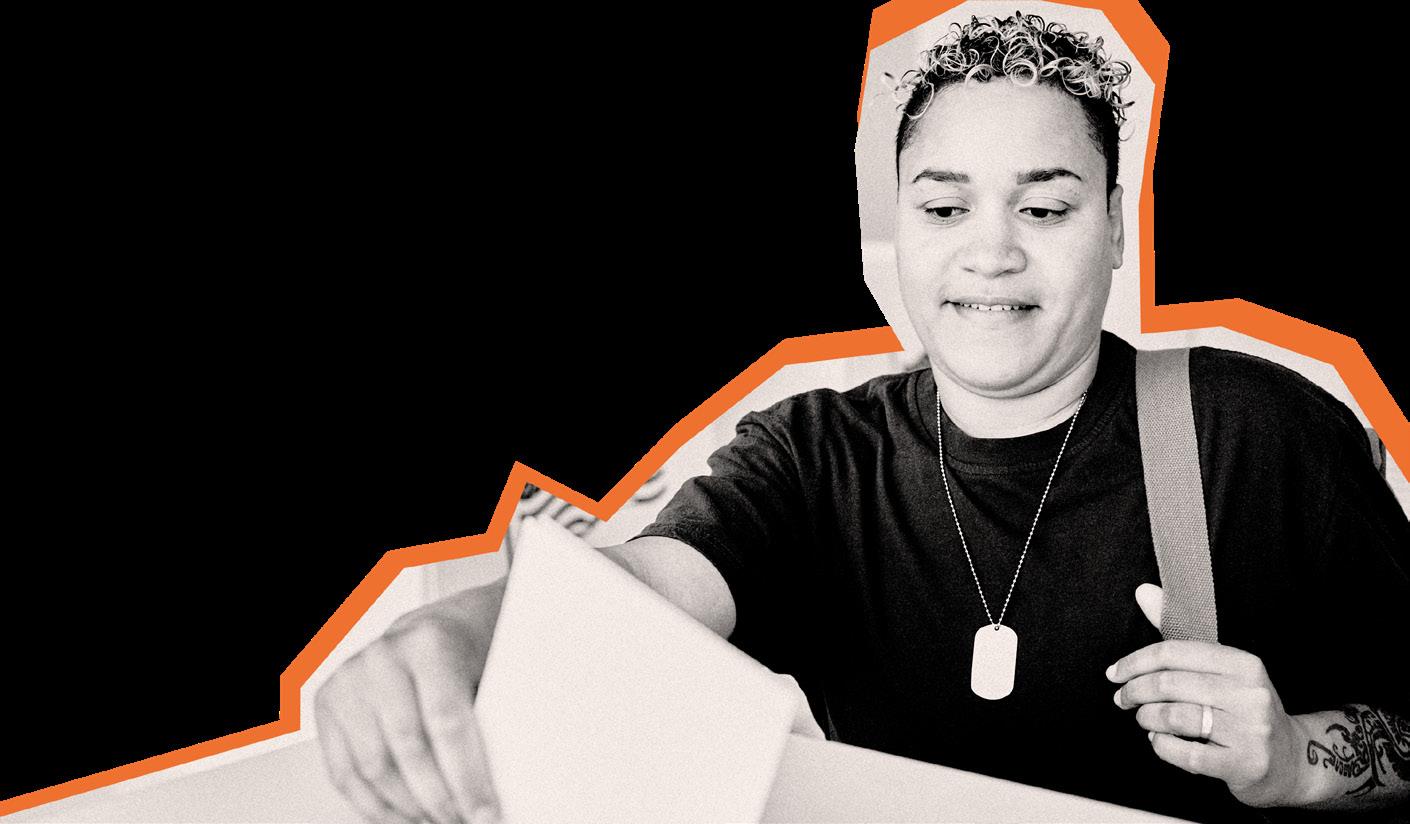




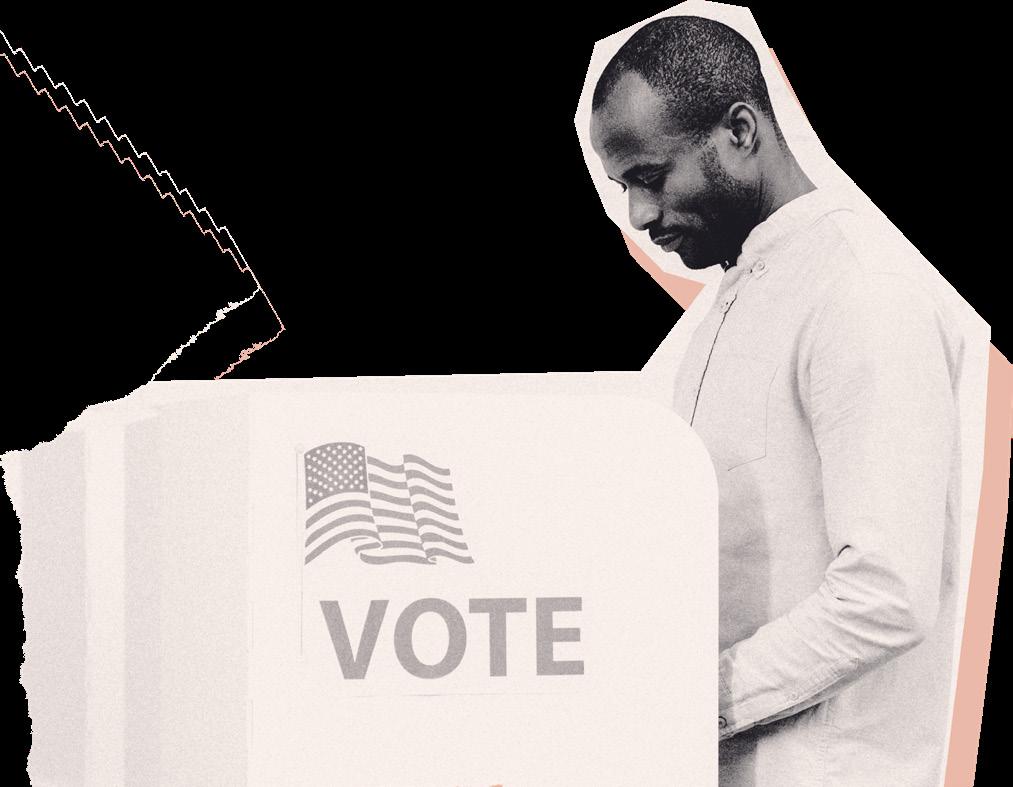

KEEP THESE DATES IN MIND WHEN CREATING YOUR VOTING PLAN.
> The last day to register to vote before the General Election is October 7, 2024 (See page 11 for registration information.)
> Early In-Person Voting begins on October 8 and ends on November 3, 2024. Although the Board of Elections is typically closed on weekends, it is open October 26th and 27th, and November 2nd and 3rd for early in-person voting.
> Absentee Voting By Mail also begins October 8th. If you are in the Military or will be overseas on Election Day, Absentee Voting begins on September 20th. See page 15 for more information on Absentee ballots.
> Election Day is November 5, 2024 . Polls Open 6:30 a.m. and close 7:30 PM. All absentee ballots must be received by the Board of Elections by 7:30 PM If it has not been postmarked by November 4th , your completed ballot can be taken directly there.
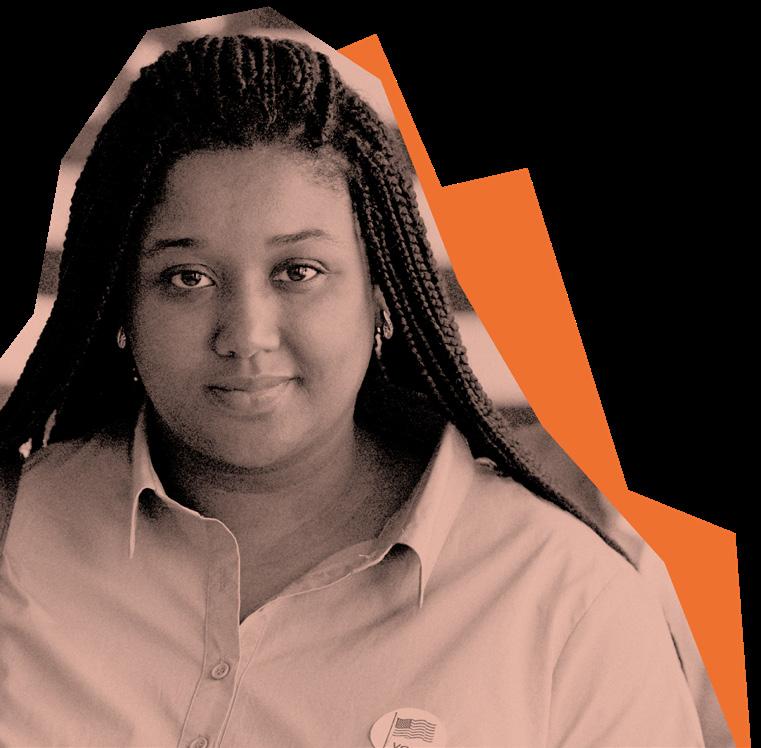
For more information about voter registration, scan this QR or visit olvr. ohiosos.gov.
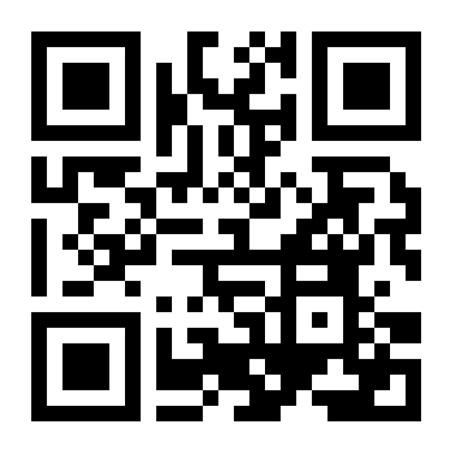
To check your registration status, visit bit. ly/OHregstatus
The last day to register to vote before the General Election is October 7, 2024. This can be done online or in person at the Board of Elections by 9:00 PM on October 7th. The Cuyahoga County Board of Elections is located at 2925 Euclid Ave in Cleveland, OH. If you would like to mail your voter registration, it should be postmarked by October 7th.
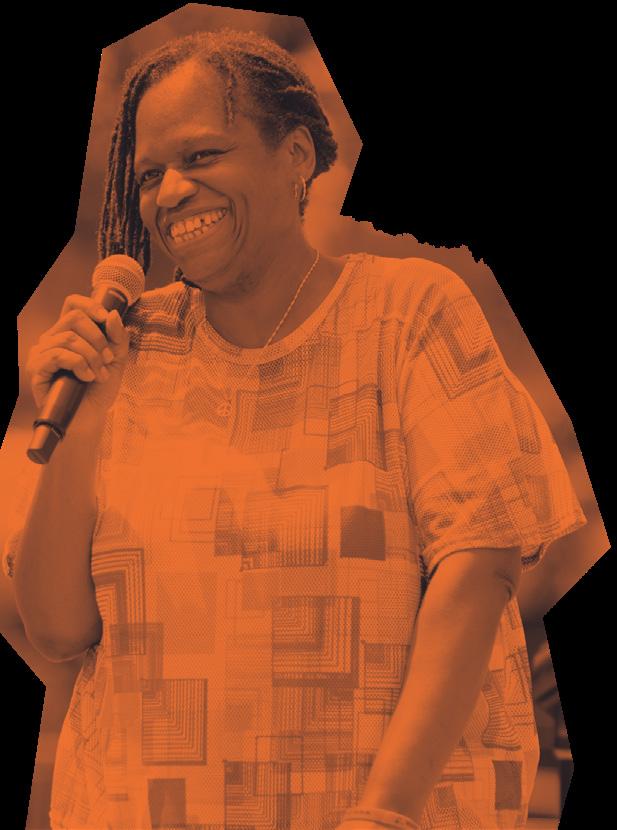
To find your polling place, scan this QR or visit bit.ly/OHpolling
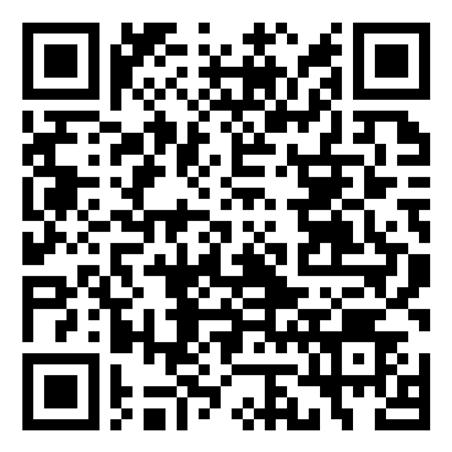
The Citizens Not Politicians (CNP) Amendment is an initiative to end gerrymandering (the political manipulation of electoral district boundaries with the intent to create an undue advantage for a party, group, or socioeconomic class within the constituency). The amendment would ban lobbyists and politicians from redistricting and establish the Ohio Citizens Redistricting Commission, empowering citizens to draw fair districts using an open and transparent process.
legislative and congressional redistricting plans.
A “ no ” vote opposes establishing the Ohio Citizens Redistricting Commission (CRC), thus keeping the Ohio Redistricting Commission, a politician commission (any redistricting commission whose members can hold political office) established in 2015 for state legislative districts, and the process established for congressional districts in 2018.
For more information,
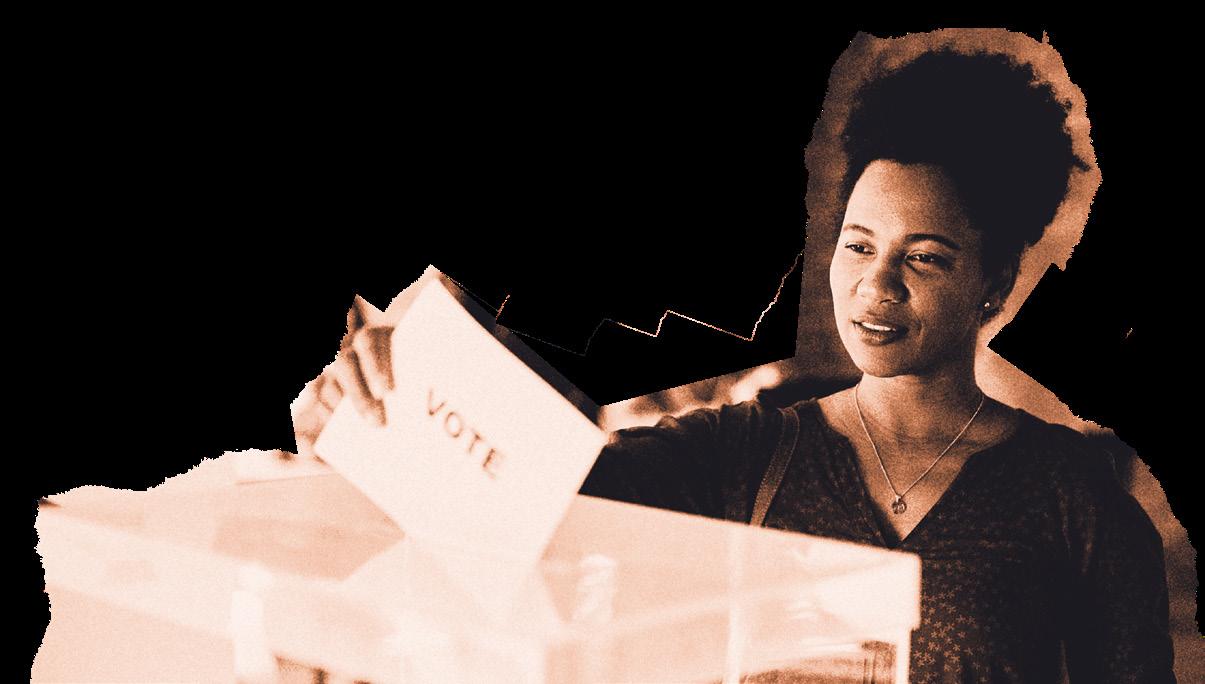
SCAN THE QR TO SEE A FULL LIST OF CANDIDATES RUNNING FOR OFFICE.
These positions include:
> President of the United States
> OH Senate
> OH House of Representatives (District 1-15)
> State Supreme Court
> State Board of Education (Districts 1, 5, 6, 7, 8, 11)
> Cuyahoga County Prosecutor
> Cuyahoga County Council
> Cuyahoga County Common pleas court judges.
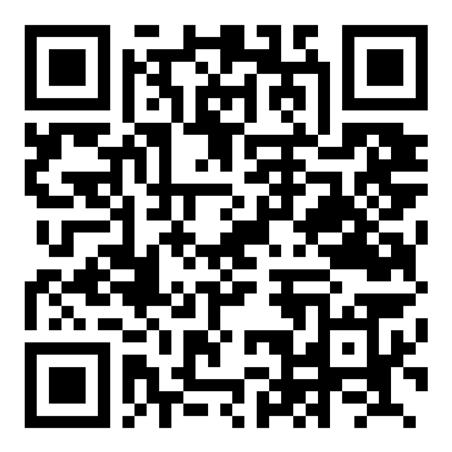
A sample ballot is a document sent to registered voters to help prepare for an election. It would provide your polling place, the hours the polling place is open, and an image of what the actual ballot looks like including candidates, ballot measures, and instructions for voting. This can be requested 30 days before the Election. Scan the QR to request a sample ballot beginning October 7th or visit bit.ly/CLEsampleballot.
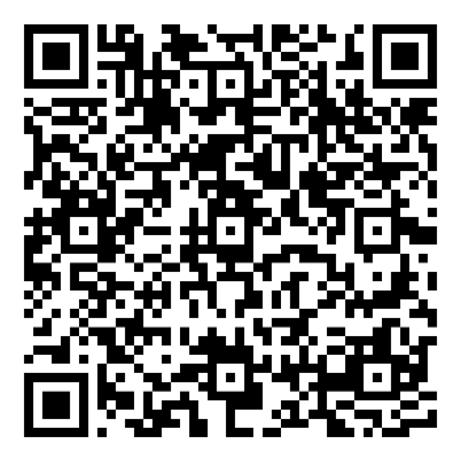
Absentee voting is a way to cast a ballot in an election without voting in person at a polling place or voting center. This is ideal for students who are away from home and can not make it to their polling place, active military members, or elderly or disabled folks who are physically unable to make it to the polls. Scan here for an application to obtain your absentee ballot: bit.ly/ OHballotrequest
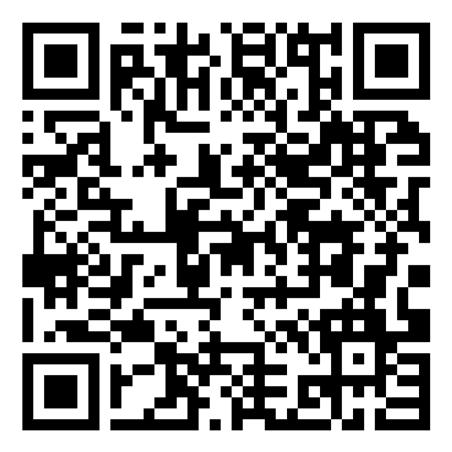

Your absentee ballot request must be received by 4:30 PM on October 29, 2024.
After you receive your absentee ballot, your vote must be cast by completely filling out the ballot and returning it to the Board of Elections by mail (postmarked by Nov. 4th), or in person on Election Day (Nov. 5th) by 7:30 PM.
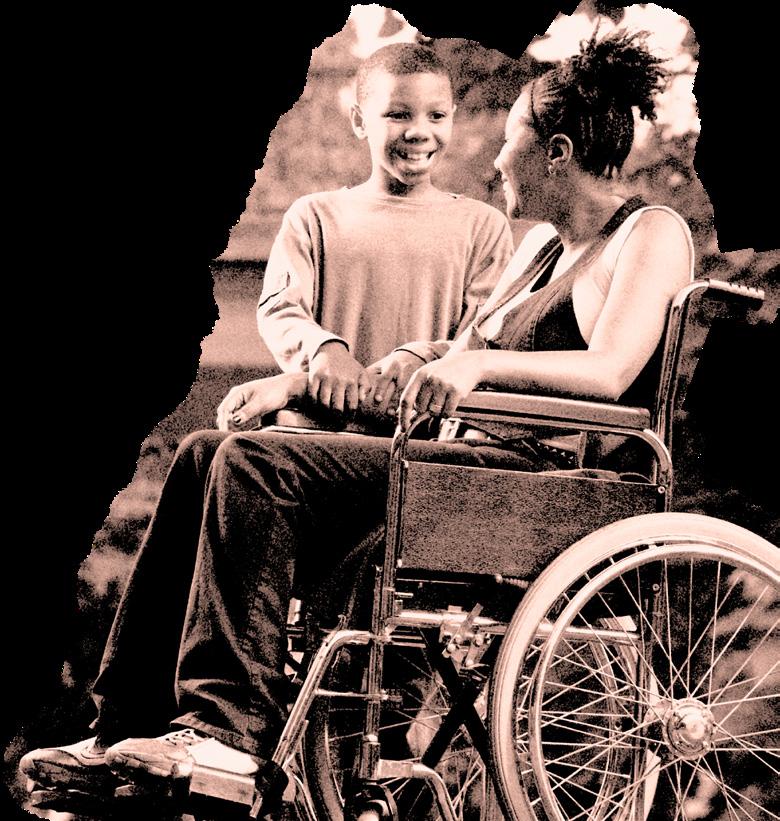
In light of recent efforts to limit the participation of voters from marginalized communities in the 2024 General election, it is critical to fully understand your rights as a voter. If you have a question about your eligibility, read the following:
You are qualified to register to vote in Ohio if you meet all the following requirements:
> You are a citizen of the United States
> You will be at least 18 years old on or before Election Day, Nov. 5th.
> You will be a resident of Ohio for at least 30 days immediately before Election Day
> You are not incarcerated (in prison or jail) for a felony conviction under the laws of this state,
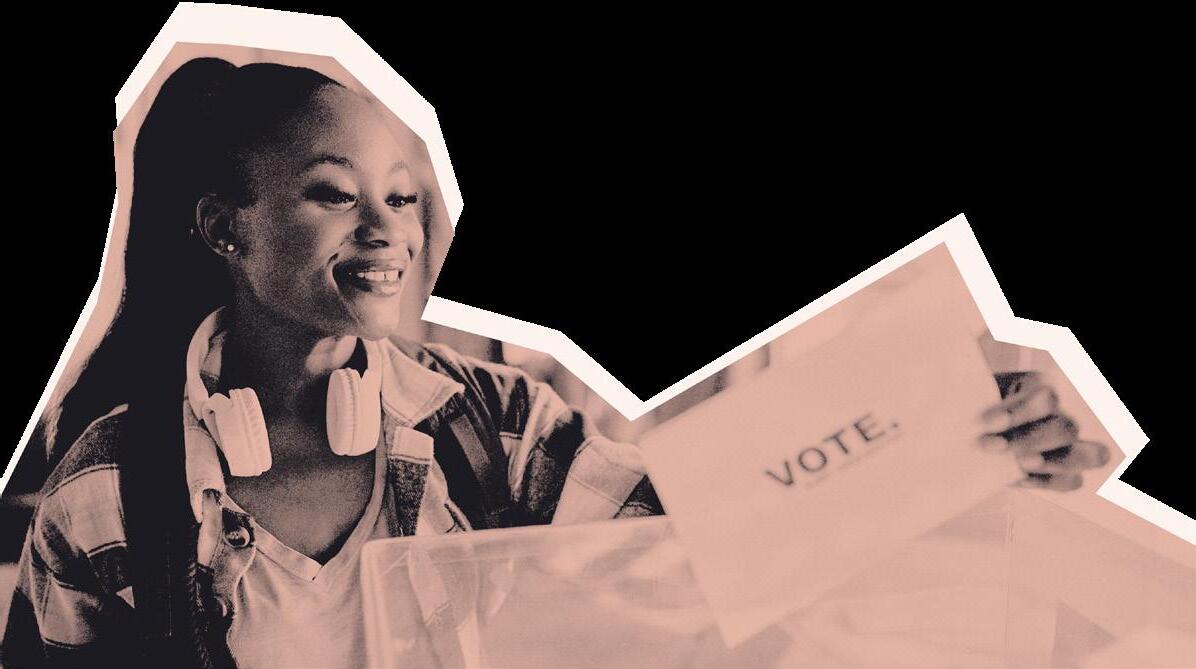
your voting status if you are justice-impacted.
> You have not been declared incompetent for voting purposes by a probate court.
> You have not been permanently disenfranchised for violating the election laws.
> You must be registered to vote by the registration deadline.
VOTER ID REQUIREMENTS
On page 6, we shared that HB 458 created a lot of changes to what’s considered valid identification (among other things) when voting. Ohio House Bill 458 eliminates the option to provide the following as a valid form of ID: current utility bill, bank statement, government check, paycheck, other government document, and concealed carry permit.
Here is a list of what is considered “valid” identification:
> An unexpired Ohio driver’s license with current or former address
> An unexpired state ID card with current or former address
> U.S. passport or passport card
> Military ID, specifically a U.S. Military ID card, Ohio National Guard ID card, or a U.S. Department of Veterans Affairs ID card
> When voting by mail, you can use the last four digits of your Social Security Number (SSN) as identification when casting an absentee ballot.
Unlike driver’s licenses, Ohio State IDs are free. Ensure your ID does not expire on or before November 5, 2024. If you do not have an ID or your ID will expire before election day, visit www.bmv.ohio.gov.
VOTING WITH A CRIMINAL CONVICTION
Even with a criminal conviction, you may still be eligible to register to vote and participate in the 2024 election. Here’s what you need to know: If you have been convicted of a misdemeanor, you can vote, even if you are incarcerated . You do not lose the right to vote if you are convicted of a misdemeanor in Ohio. If you are incarcerated for a misdemeanor, you should check your voter registration status, register to vote if necessary, and request an absentee ballot from office administrators at your place of incarceration. You can also vote while awaiting trial for any charge, even if incarcerated at the time.
right to vote. When it comes to criminal convictions, the only time you may not vote is if you are currently incarcerated on a felony conviction. Once you are released, you can re-register to vote. You have to reregister even if you were registered prior to being incarcerated. You regain your right to vote.
You can vote if you are on parole or probation, live in a halfway house, or are under House Arrest. If you have fully completed your sentence, you may register to vote and cast a ballot.
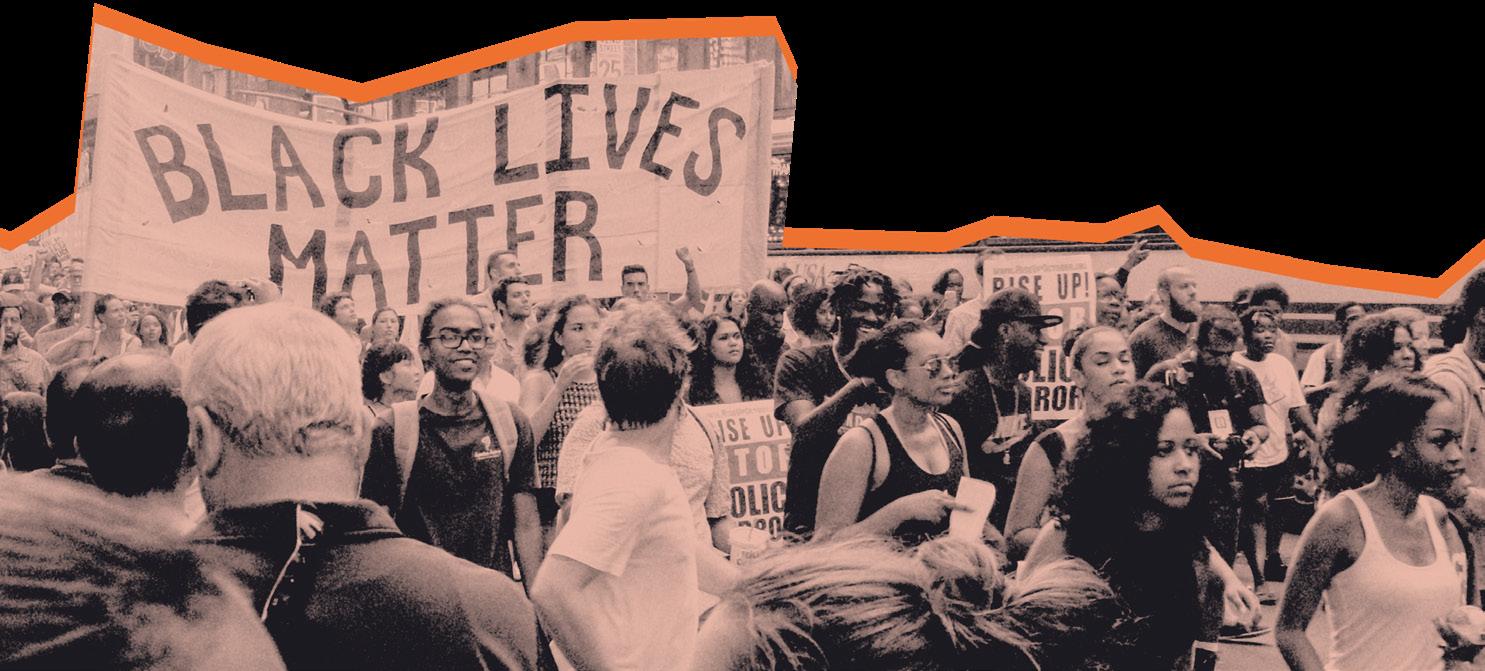
If you have been arrested for a felony but have not been convicted , you still have the
If you were not previously a resident of Ohio prior to being incarcerated, you can not register to vote in Ohio. Being incarcerated in Ohio does not automatically mean you are a resident of Ohio. If you need to determine your status, call 1-866-OUR-VOTE.
In all states, it’s a felony to vote if your voting rights are currently revoked.
ChristaFreehands is a freelance artist based in Cleveland, OH. She specializes in acrylic paints on canvas and fabrics but loves to experiment. Her work mirrors surrealism, pop art, street art, and afrofuturism. Her work speaks about her interests and emotions, highlighting mental health, fashion, graffiti, and everyday experiences and influences as a Black person in the LGBTQ+ community.
@christafreehands
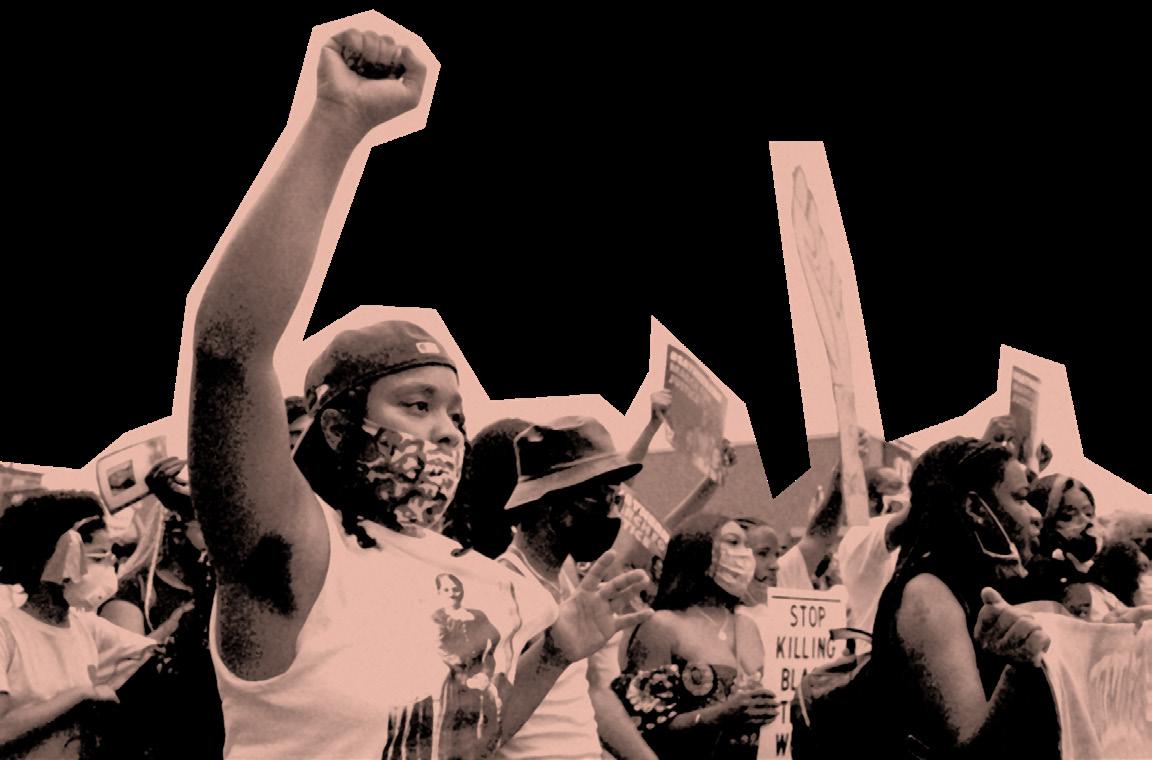
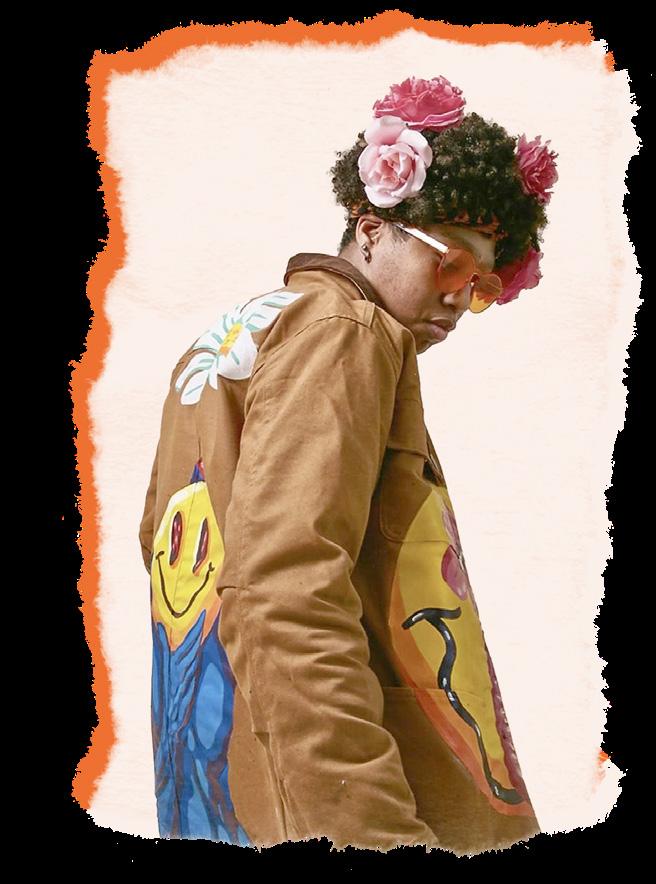

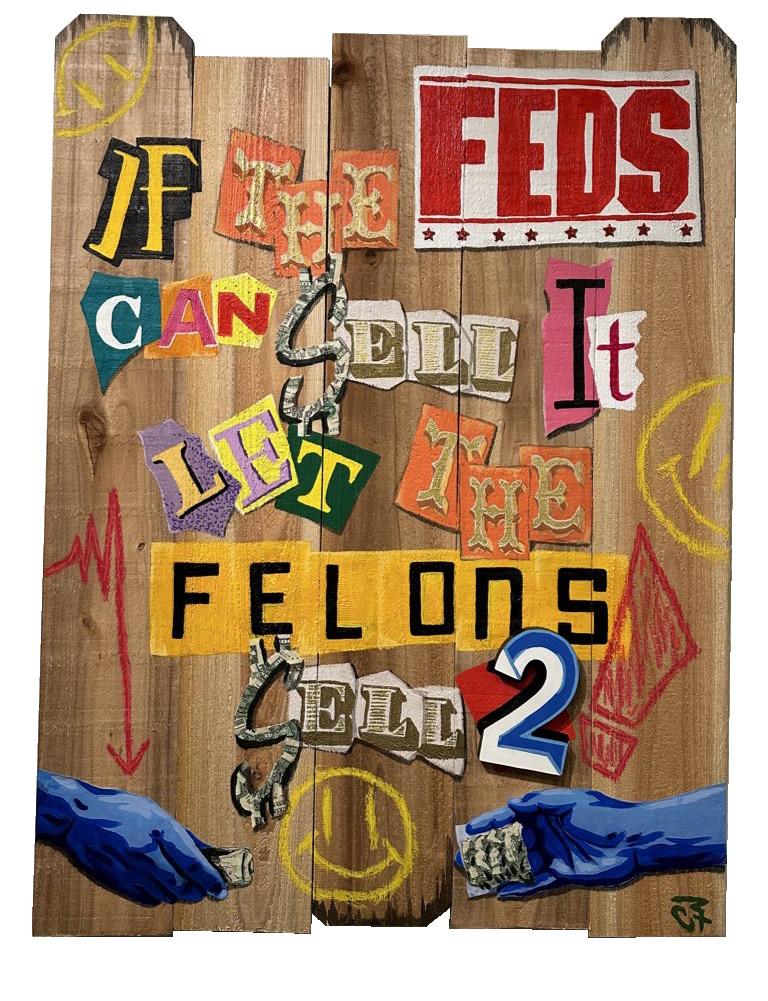
being incarcerated for using and selling marijuana while the government profits off of the new laws allowing the legal sale and recreational use of marijuana across the country.”

Ohio Issue 2 legalized the sale and recreational use of cannabis, creating new revenue streams for the state through taxes. Yet, while the government profits from this newly legal market, many people – especially Black Ohioans– remain incarcerated for the same activities. This discrepancy highlights the ongoing injustice of the state benefiting from cannabis legalization while continuing to punish those who were disproportionately targeted under previous laws. True justice must demand the release, record expungement, and reentry support of those who have been incarcerated or burdened with criminal records for past cannabis offenses – including usage, possession, and distribution.
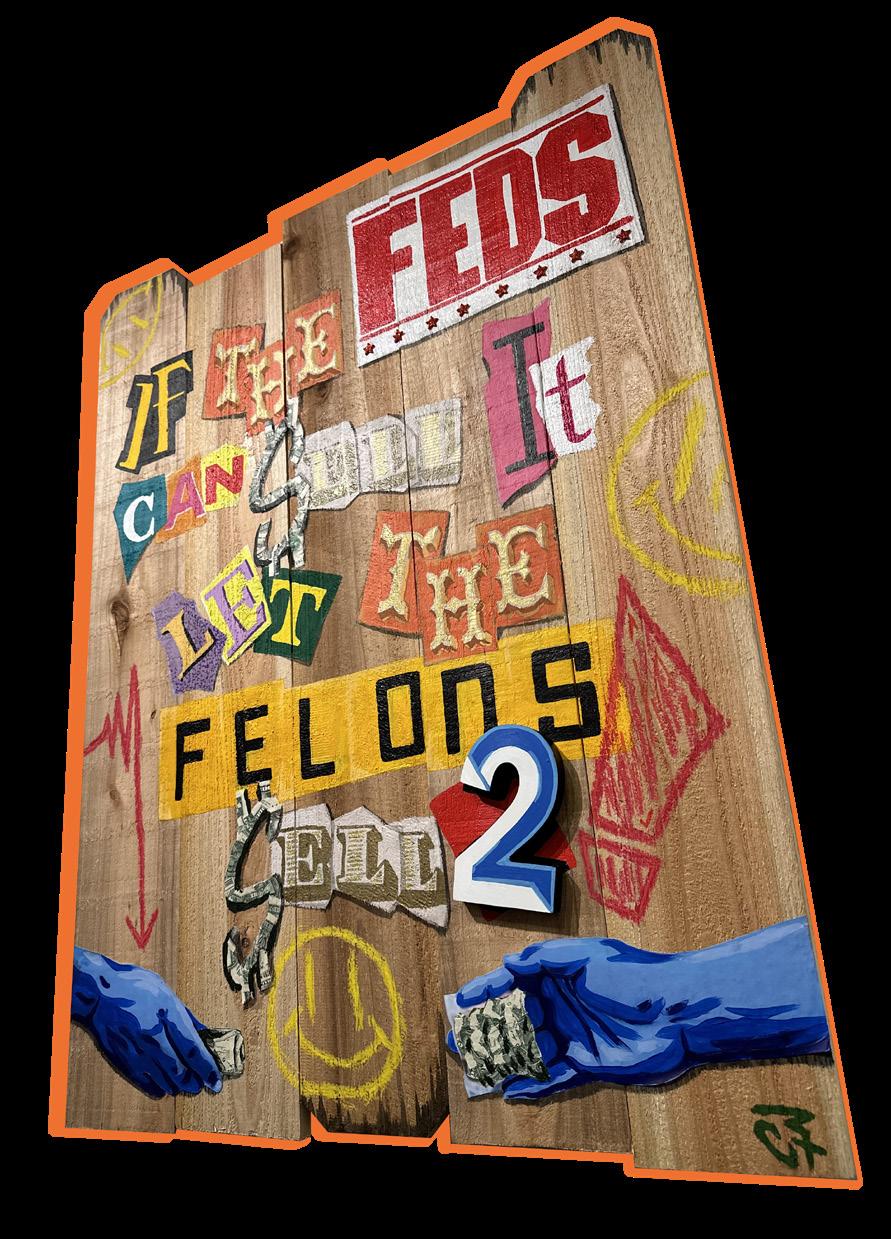
This inequity contributes to the destructive cycle of poverty, disenfranchisement, and marginalization for Black and Brown communities. Ohio must prioritize taking the next step to rectify this injustice to ensure that the benefits of legalization are equitably shared.
Mutual aid is a community care model that New Voices embraces as a core part in our organizing. It is resourcing and empowering communities to care for themselves and one another while navigating the systems of oppression that impact the quality of our lives.
We believe that Ghetto Therapy embraces this model. Ghetto Therapy™️ is an award-winning mutual aid group that offers free therapy sessions open to the public and includes all age groups. Therapy sessions
include a healthy dinner, facilitated discussions by guest speakers, and exposure to different forms of therapy including Reiki, Sound, Art, Meditation, Yoga, and Foot detox. Ghetto Therapy is held on the second Wednesday of each month from 6 to 8 PM. To learn more, visit ghettotherapy.org/blank.
Cleveland Pandemic Response (CPR) is a nonhierarchical mutual aid group mobilizing pandemic-related resources and information–food, masks, hygiene items, diapers, pantry boxes, and cleaning supplies– to
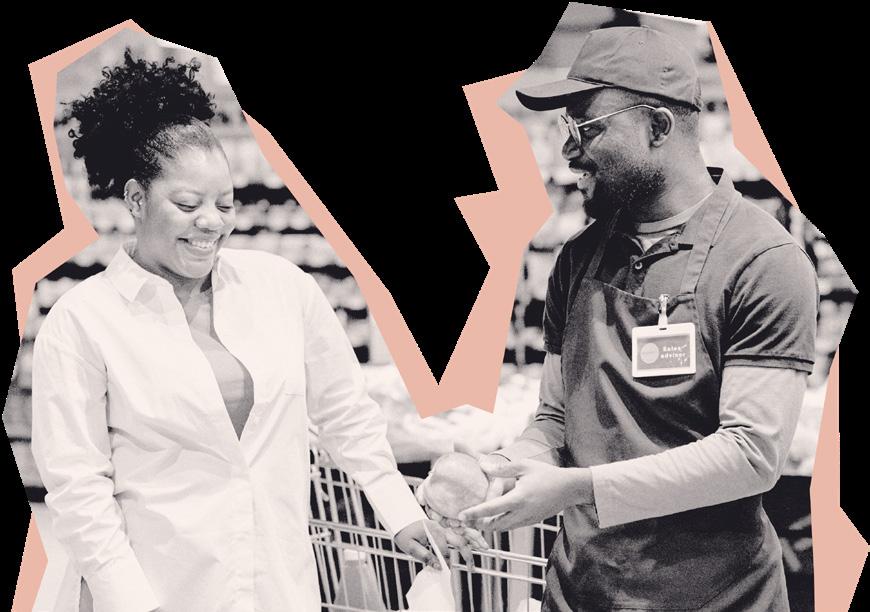
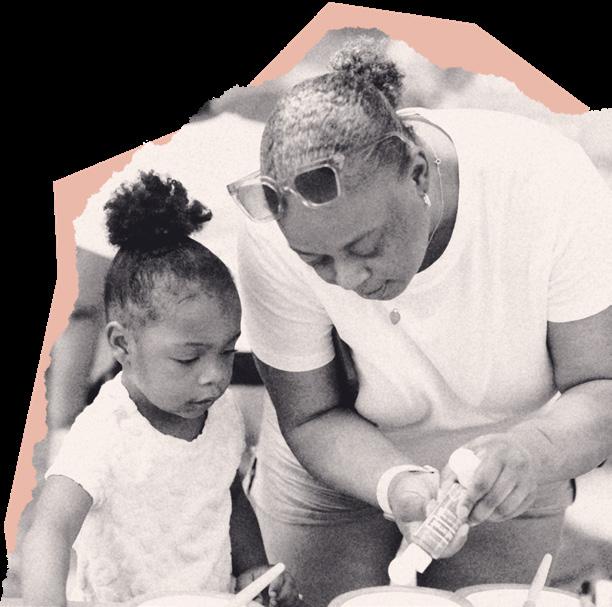
families and individuals throughout the Greater Cleveland Area. CPR is a community-based network built to provide for the needs of Cleveland during and after the COVID-19 pandemic.
CPR believes in
committed to being proBlack, pro-indigenous, pro-migrant, pro-worker, pro-LGBTQIA+, pro-people, pro-earth. CPR is committed to respectful and intentional transformation and healing justice in our community.
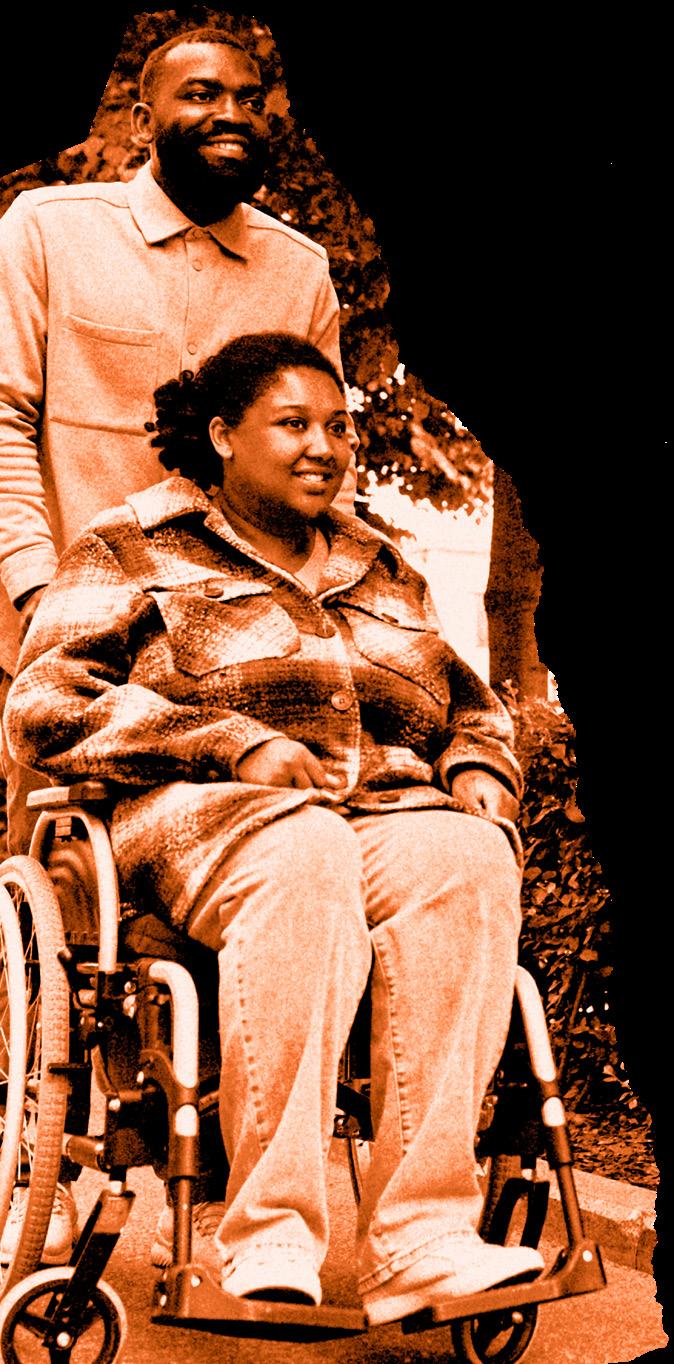
To learn more visit cprcle.org.
New Era Cleveland is a grassroots movement that advocates for the self-empowerment and self-determination of Cleveland’s predominantly Black community by leadership cultivation, promoting responsibility, and providing youth development initiatives. They offer Community Engagement Walks accompanied by social workers, medics, case managers, and/or spiritual healers of various faiths, as a community safety response to help address concerns and crises, promoting safety by deescalating and deterring harm. Learn more about other initiatives at instagram.com/ neweracleveland.
Cardinal CLE adopts a grassroots strategy to tackle prevalent health and quality of life disparities that Black trans and gender nonconforming (BTGNC) people face. This involves bolstering community outreach efforts and collaborating with community partners to enhance access to safe,
affirming, and culturally competent healthcare for transgender and genderdiverse individuals in the Greater Cleveland, OH region, emphasizing a commitment to BTGNC joy and pleasure as protective factors for energetic communitybuilding. To learn more visit instagram.com/cardinal_cle.
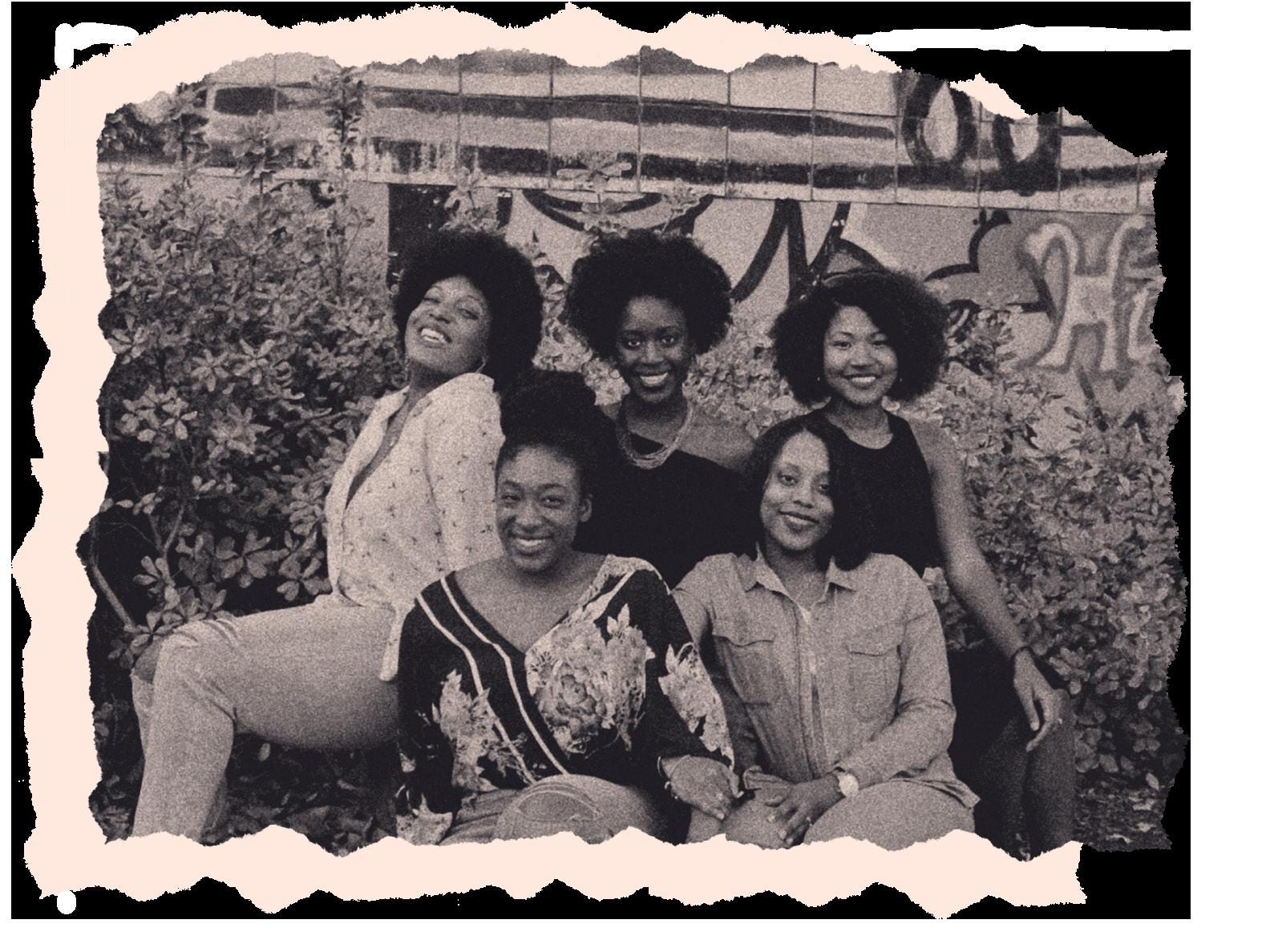

Community Advocacy
is a multigenerational, intersectional hub for Palestine organizing in Cleveland and Northeast Ohio. Spearheaded by members of Cleveland’s Palestinian community, CPCA collaborates with activists, organizers, and community partners from a wide range of

backgrounds to strengthen collective bonds through teach-ins, protests, and political education in order to activate community members in the struggle against state and colonial violence for the liberation of Palestine. To learn more visit @cleveland.palestine on Instagram.
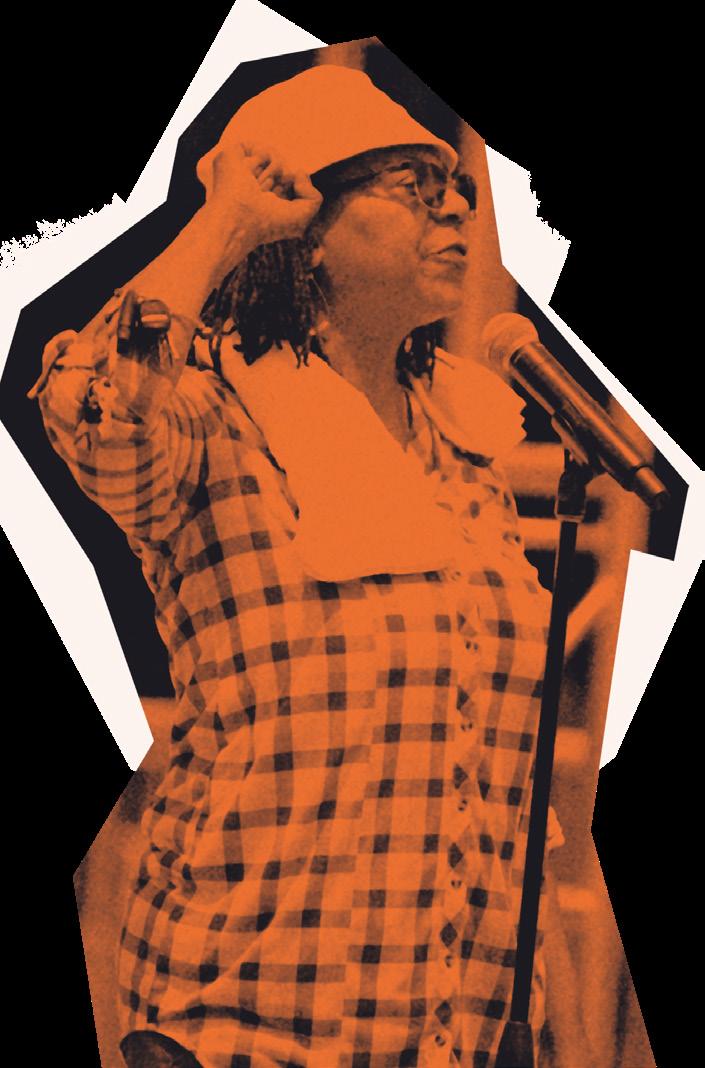
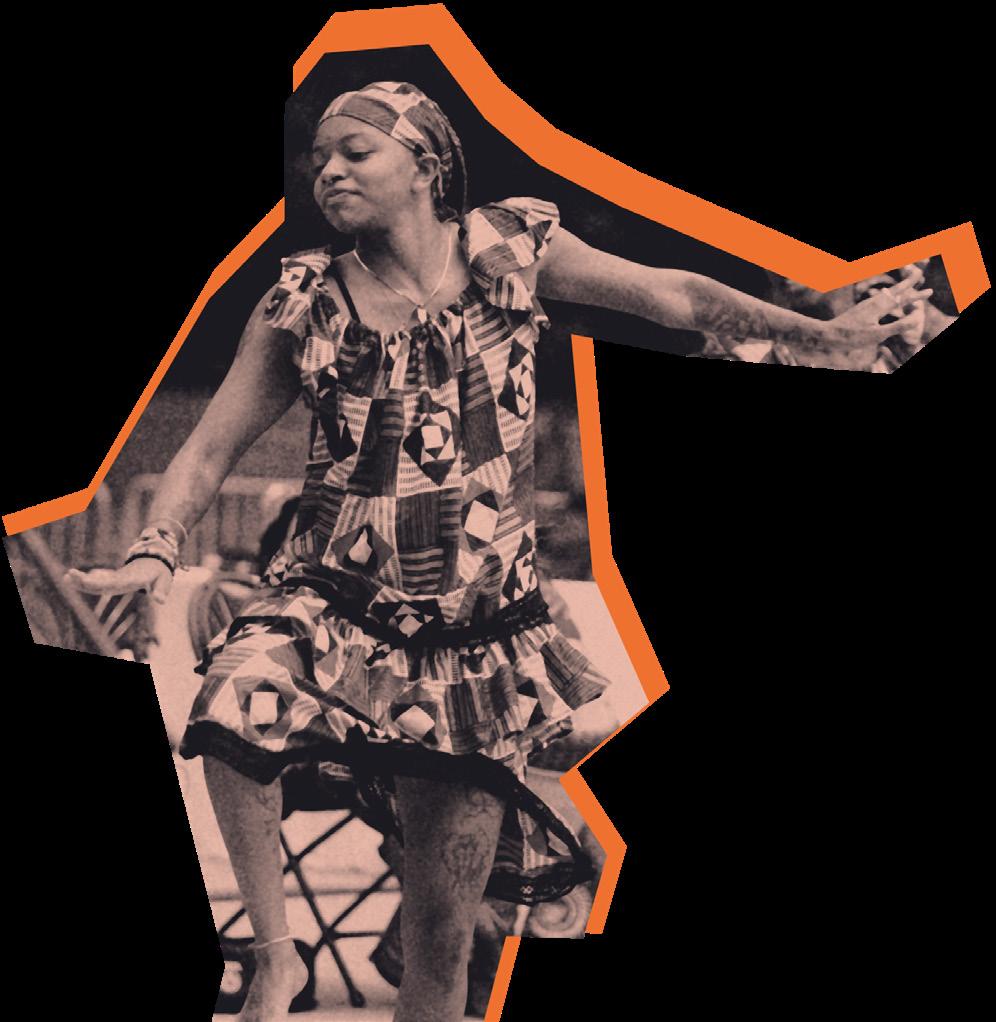
Ahlon Gonzalez is a driven organizer, arts administrator, and cultural strategist in Cleveland, Ohio, passionate about uplifting marginalized voices in the arts. With a Bachelor’s degree in Africana Studies from the College of Wooster and a Master’s in Global Communications from the American University of Paris, Ahlon brings a deep appreciation for diverse perspectives and intercultural communication.
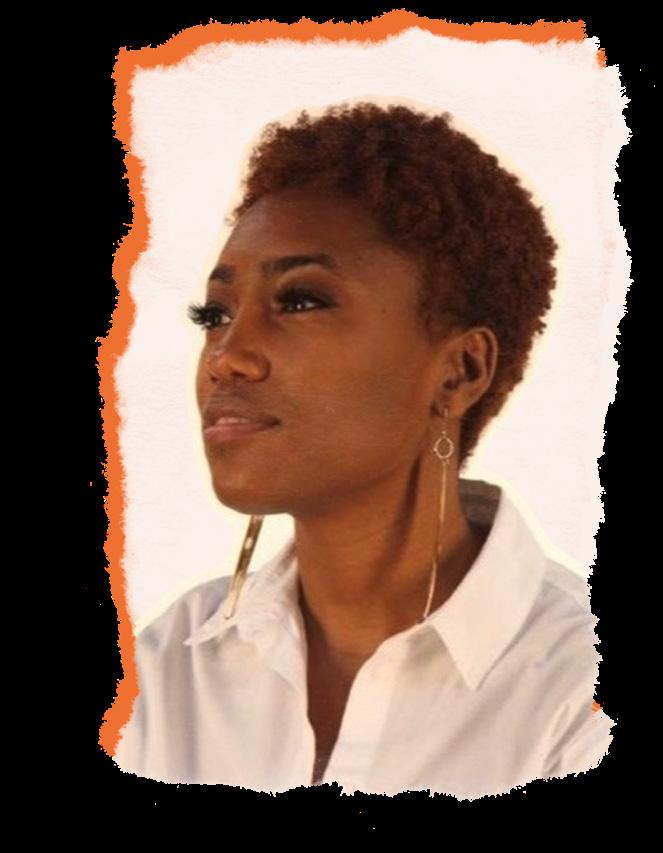
As a dynamic force at LAND studio, Inc., Ahlon leads transformative public art projects, creatively engaging with communities and fostering powerful collaborations that bridge art and activism. Through previous work in nonprofits, Ahlon used a social justice
lens to address food insecurity and wealth creation in Cleveland’s inner cities. In her current role as a Creative Activism Cultural Strategist for Cleveland VOTES, Ahlon continues to drive artistic innovation and community impact, bridging the gap between art and activism.
Policy is legislation (the preparation and enactment of laws) made in response to some sort of societal or community issue or problem that requires attention. It can be thought of a what the government chooses to do (actual) or not do (implied) about a particular issue or problem.
Here are some Important facts to know about how policy works in politics:
> Policy refers to legislation that (1) might take the form of law or regulation, or (2) the set of all the laws and regulations that govern a particular issue or problem.
> It might be made on behalf of the public.
> It may be oriented toward a goal or desired state, such as the solution to a problem.
> Policy is ultimately
made by governments, even if the ideas come from outside of the government or through the interaction of government and the public.
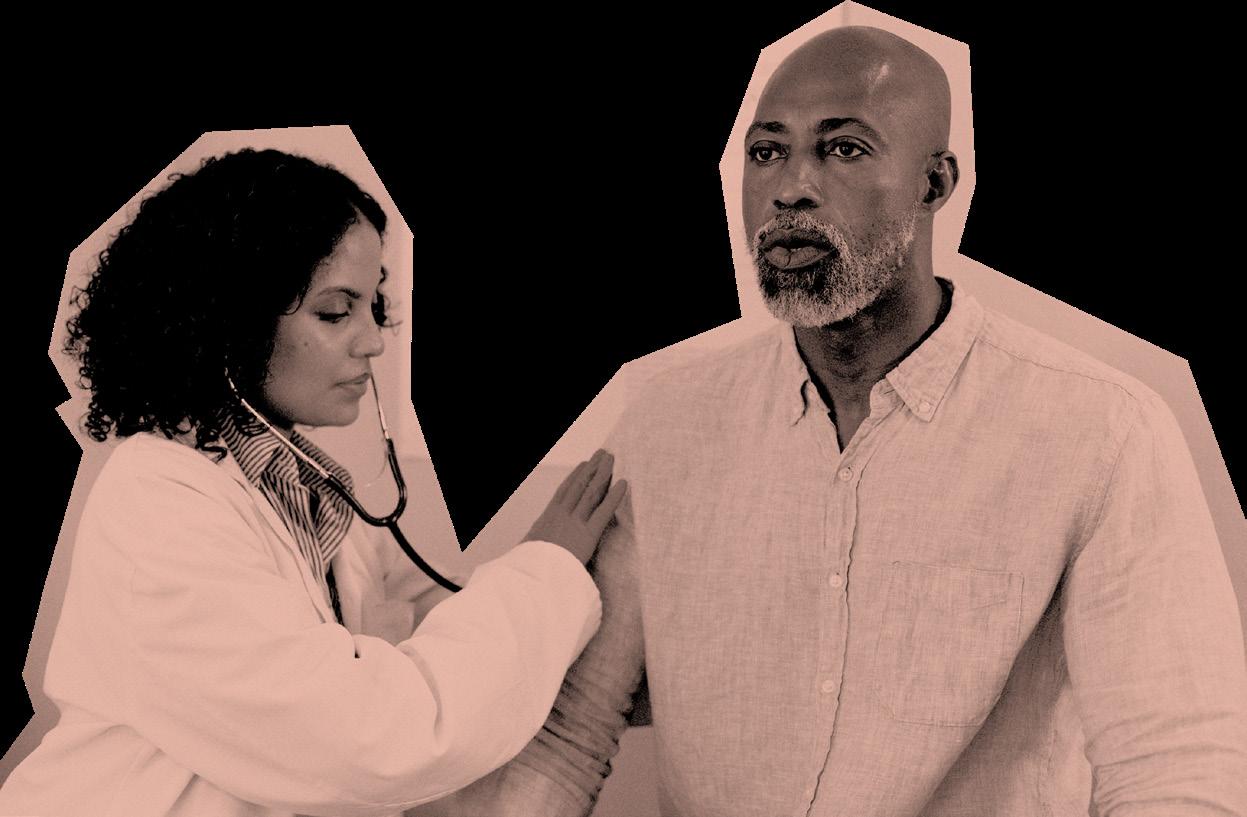
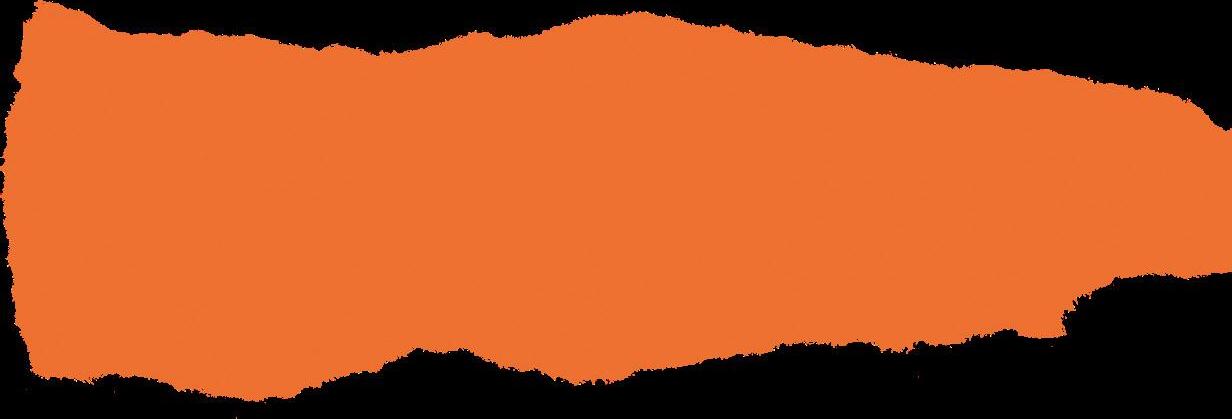
> It is part of an ongoing process that does not always have a clear beginning or end, since decisions about who will benefit from policies, and who will bear any burden resulting from the policies, are continually reassessed, revisited, and revised.
The Ohio Senate and House of Representatives

advance policies in OH by creating, amending, and repealing legislation. Representatives have the opportunity to collaborate with other House members to draft and introduce new bills or resolutions, debate potential policies, and cast their votes to pass legislation on the House floor. The ‘House floor” is where legislative decisions are made at the Capitol building. To create new policy, both the Ohio House and the Ohio Senate must vote to pass the respective legislation, which then must be signed by the Governor within 10 days.
The Citizens Not Politicians Amendment is a citizen initiative to end gerrymandering. It bans lobbyists and politicians from the redistricting process and instead establishes the Ohio Citizens Redistricting Commission, empowering citizens to draw fair districts using an open and transparent process. The Citizens Not Politicians Amendment will create the 15-member Ohio Citizens Redistricting Commission made up of Democratic, Republican, and Independent citizens who broadly represent the different geographic areas and demographics of the state. It would also ban current or former politicians, political party officials, and lobbyists from sitting on the
Commission. It would require fair and impartial districts by making it unconstitutional to draw voting districts that discriminate against or favor any political party or individual politician and require the commission to operate under an open and independent process.
The Ohio Ballot Board passed new language written by Secretary of State Frank LaRose. This language is widely described as long and misleading, with accusations that it aims to deceive voters, leading them to believe they are voting to gerrymander districts. Supporters of Issue 1 have filed a lawsuit over the Ohio Ballot Board’s wording of the redistricting issue.
Information from Honesty for Ohio Education honestyforohioeducation.org
The Secretary of State chairs the five-member Ohio Ballot Board and provides professional, technical, and clerical support for the Board. The Board has several responsibilities, including certifying ballot language for any proposed constitutional amendments, whether citizen or general assembly-initiated statutes and referenda. The board is also tasked with informing voters of all proposed ballot issues.
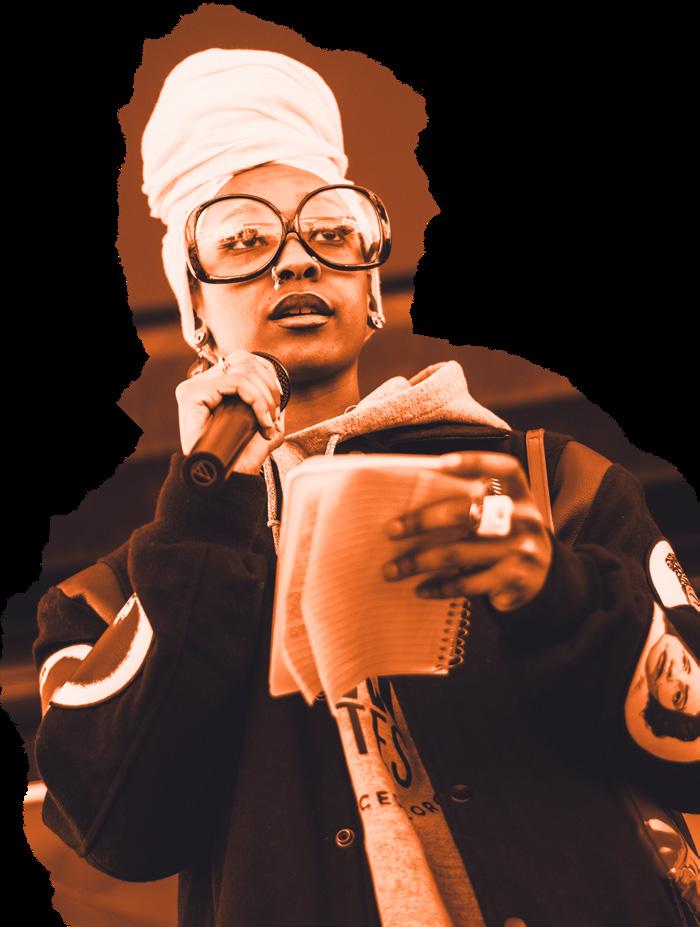
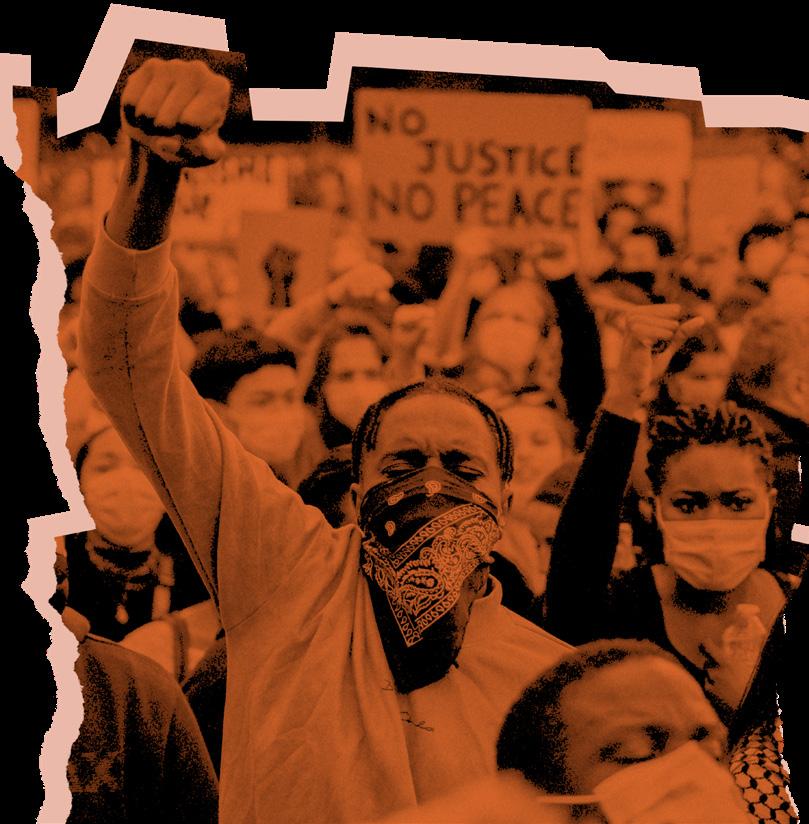
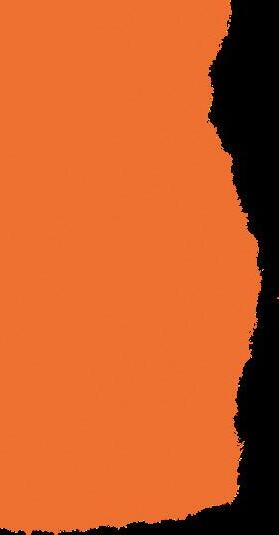

This Election season has been a confusing and emotional time for many of us. Making a decision to vote, creating a plan to vote, and deciding who and what to vote for can be exhaustive. This is just as good of a time as any to take special care of yourself. Here are some tips and herbal remedies to support you as you prepare for Election Day, and community advancement work beyond November.
1. Prioritize Rest
Intentional rest is vital for maintaining focus and emotional resilience, especially during busy times. Establish a soothing nighttime routine— limit screen time before bed, use calming scents, or read a book to help you unwind
2. Stay Active with Exercise and Body Movement
Engaging in regular physical activity can significantly reduce stress and improve your mood. Exercise and body movement releases endorphins, which
can improve your overall sense of well-being and clarity.
3. Connect with Loved Ones for Fun
Spending time with friends and family can provide a welcome distraction and help alleviate stress. Be open to making new friends, organizing a game night, or being in spaces that affirm you, like an open mic or having explorative conversations. These moments of joy remind you of the support network surrounding you.
4. Share Warm Hugs (with consent!)
Hugs can help reduce
stress and boost your mood by releasing oxytocin, the “feelgood” hormone. Make it a point to hug loved ones regularly; it fosters connections and enhances feelings of safety and companionship.
5. Nurture Your Spiritual Health
Engaging in spiritual practices can greatly enhance your mental clarity and emotional well-being. Take a few moments each day to connect with your inner self, focus on your intentions, and foster a sense of peace.
6. Incorporate Calming Herbs
Incorporating herbs into your routine is a good way to provide your body with nourishment and relaxation. Consider these calming herbs:
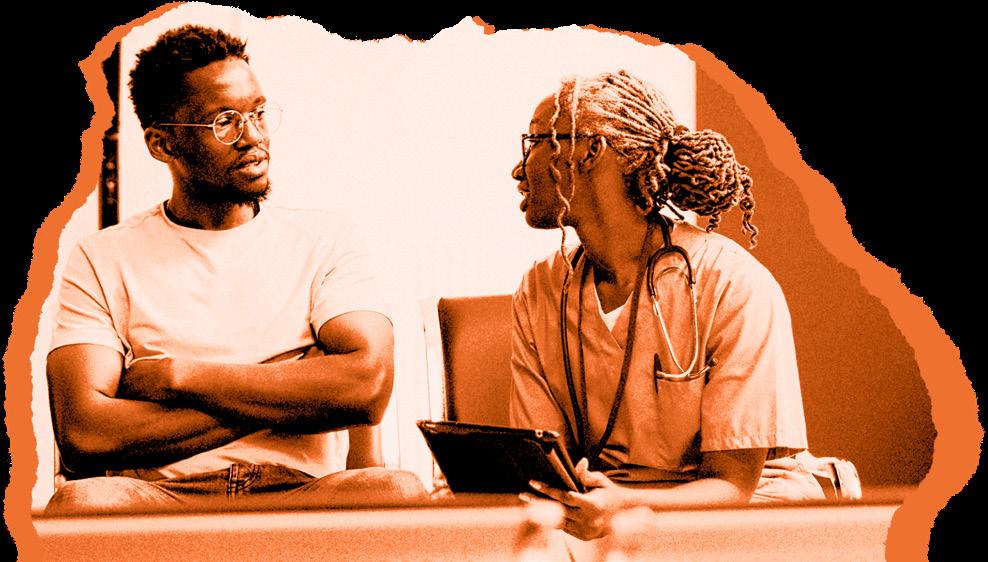
> Chamomile can help reduce anxiety, promote relaxation, and improve sleep quality—ideal for winding down after a busy day of decisionmaking.
> Lavender can help alleviate stress, improve relaxation, and even promote better sleep. Enjoy lavenderinfused tea or essential oils to enhance your calming routine.
> Peppermint can help invigorate the mind while alleviating stress. It’s also beneficial for digestion and can help relieve tension headaches, making it perfect for a quick mental boost.
> Sage is recognized for its ability to promote mental clarity and reduce anxiety. It can also help enhance mood.
> Taking a warm bath infused with these calming herbs can help relax your muscles and create space for your mind to unwind.
Although voting is an essential civic duty, taking care of yourself is the priority. By incorporating these self-care practices into your routine, you can nurture your body and mind while making informed decisions. Embrace these tips, enjoy some herbal goodness, and approach the voting process with clarity and confidence. Your well-being matters!
